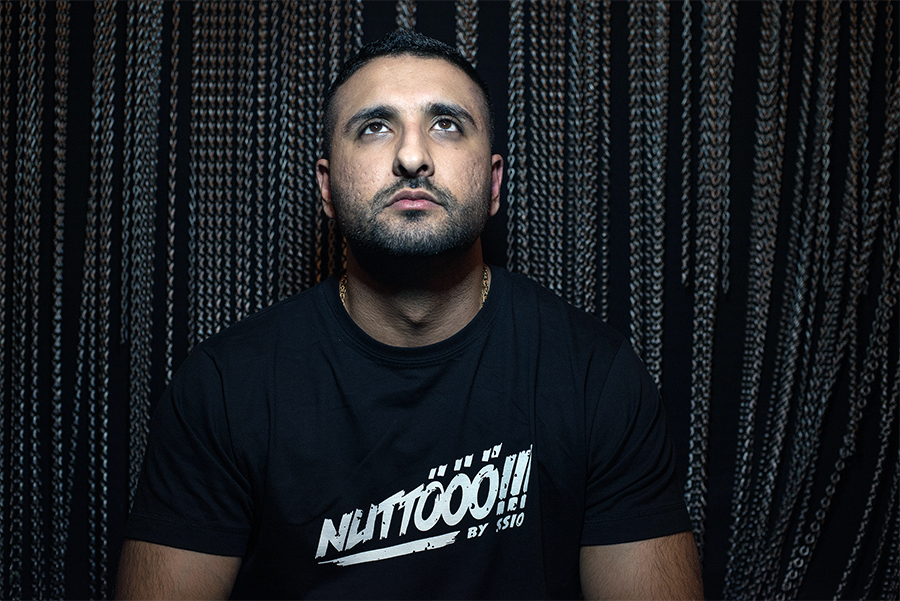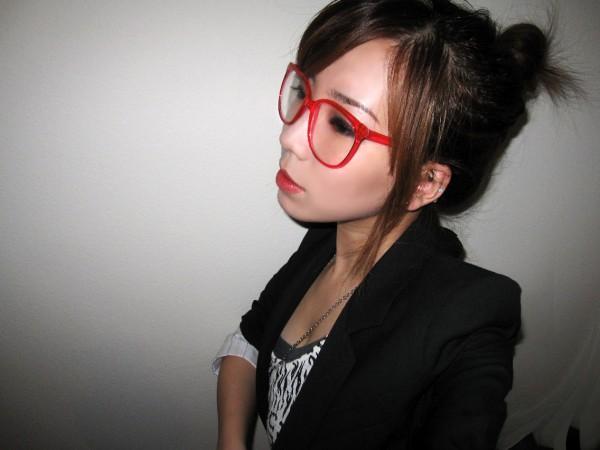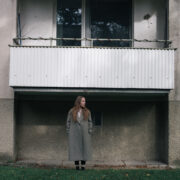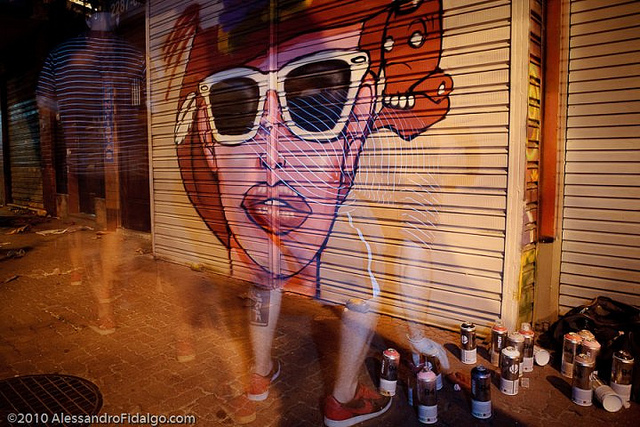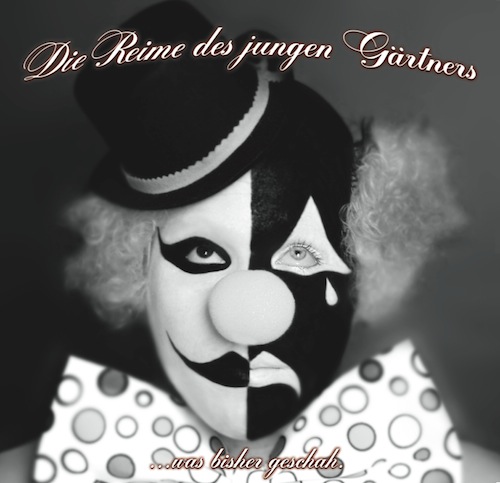Auf Tokimonsta wurde man vor gar nicht langer Zeit nur als wirklich engagierter Hörer aufmerksam. Anfang 2010 und vielleicht auch bereits spät im Jahr 2009 konnte man den einen oder anderen Blogeintrag lesen und hier und da einen Radio DJ über sie sprechen hören. Heute ist das nicht mehr so. Die Produzentin aus LA nahm mittlerweile an der Red Bull Music Academy teil und wird dort wahrscheinlich auch bald vortragen. Sie zog mit ihrem ersten Release „Cosmic Intoxication“ auf RAMP Recordings im August letzten Jahres die Aufmerksamkeit einer größeren Hörerschaft auf sich. Einige Releases folgten, unter anderem auf All City und Art Union. Sie füllt mittlerweile die Low End Theory in LA bis oben hin, tourt durch die ganze Welt und ist nebenbei auch noch Mitglied der Brainfeeder Familie von Flying Lotus, wo vielleicht bald ein Album erscheinen wird.
Kommenden Samstag wird sie gemeinsam mit Daedelus, einem der Pioniere des elektronisch-instrumentalen Hip Hop, in der Wiener Pratersauna aufspielen.
Das folgende Interview ist die vollständige Textversion eines Radiointerviews, das im vergangenen Herbst bei Majestic Mood in seiner Groove Merchants Radio Show on Air ging.
The classical piano is your main instrument. What age did you get started with and what influenced you back then?
I started playing when I was 5 or 6 years old and I didn’t really have an influence. My mom made me play. When you are younger you obviously don’t have a choice, your parents are just forcing you to take piano lessons. I never really stuck with playing pieces of music. I was always fixated on playing parts of songs that I liked to play the most. It would be a part of either Beethoven or Bach or Chopin, that I liked, I never liked the whole piece, so I would play that part and I guess that moved into the way I started creating music. Because through creating music I get to create pieces, of which I like the entire parts.
That you like playing especially?
Yes, when I’m performing I don’t play for someone else. It was the same thing with piano, when I was young I wanted it to be fun for myself; but obviously from a parents perspective, they would have you play so that you could do it in front of people. And I was really bad at that, I was always really nervous playing in front of people. But not now when I play my own music, cause I like it. It kind of progressed into the way I’m making music now, and it reflects on that. So if I think about it now it makes sense that I make music the way I do now.
What was the first type of sound you can remember first getting in touch with?
I first started getting into music on my own when I was 7 or 8 years old and I was listening to what all the kids basically were listening to in my area. I lived really close to the beach; so all the kids were listening to Punk, Rock, nothing to special like Green Day or Blink 182. The grunge stuff that was going on around that time, like Smashing Pumpkins or Nirvana; stuff like that. I liked it, but I discovered Hip Hop and I started listening to more Hip Hop by listening to cassettes and stuff.
What year was that in?
Like ’92 ’93.
So you were fully getting the golden era of Hip Hop basically?
Yeah, but you know it’s funny cause at that time I didn’t really know about Golden Era Hip Hop, I knew what I knew.
Was this more East Coast or West Coast related?
West coast, like at that time you heard loads of West Coast. Like 93, 94, that was when I started to really get into Hip Hop and West Coast was really big – like West Coast G Funk; Snoop Dog and all the NWA, Tupac that stuff started getting really big, and that’s what I started listening to it. Because I really liked it. Not because of the hood lifestyle; that really drew me in. Later when all the Internet stuff started getting bigger, when the dial up modems where around I discovered East Coast Hip Hop. I liked Wu Tang, I liked Biggie, I liked that kind of sound, which was coming from that side. Every side had their own things to offer and from that point on I got into more Underground Hip Hop. It had it’s own phase and when you are around a lot of Hip Hop people the main thing to do is to look at the roots, like where did Hip Hop come from?
Hip Hop came from Funk which came from Blues which came from Jazz – this while tree of music. And it’s not only this because I also listen to a lot of Progressive and Psychedelic from the 60s and 70s too. It’s cool because no matter how old you get, because there is so much music that the music from the past is still new to you, when you discover it. In terms of sampling though – in my older stuff I used to sample a lot, but as of now I don’t really sample much, and if I do it’s really incremental, like small things. What I actually do now is that I play things and I record it and loop it like a sample. I still like taking little bits from records but nowadays you have to be careful.
Coming from the piano and listening to Hip Hop music later, how did you get in touch with the music that is now also known as the Beat movement?
That’s when I started making music. When I was in high school I started to get into electronic music and raves got really big. I was one of the people that were really down with that and it went like half half. A lot of the Hip Hop people didn’t like that Rave stuff because they weren’t into that „Techno shit“. So I decided I didn’t really care about that, so I started to get into that. Basically when I started making music I had all those influences like IDM and bass music and as I got older I started going to beat showcases and hanging out and started doing beat battles. That’s when I started to be a part of this LA music scene. There’s a lot of room to showcase your talent, and it depends on where you are. Even though we are kind of creative and new, the roots is still Hip Hop, from my perspective. You have to pay your dues and have to earn your way through, it’s not like you can think you are a hot shot and come into this. It’s like you respect what you do and everyone else around you respects you for what you do. Like good vibes pay off a lot. You have to be real, no one likes someone who is full of crap. You know that’s my opinion I shouldn’t judge anyone. The more people you need the more you start to appreciate people that are nice.
You participated in the Red Bull Music Academy in London last year. The RBMA’s reputation has been growing and growing in recent years. What was your impression of the academy and what were you able to get out of the sessions?
Red Bull was an extremely valuable experience for me. I don’t think that I have ever been in a comparable situation where for 24/7 for two weeks straight you are in a complete 100% creative environment where you have access to ten studios where you have access to hundred thousand dollar equipment surrounded by creative people all the time. Like the staff that works there, the people that do other things, like administrative things for the people that are coming in at the front desk. They are all DJs on the side or the people that rent out equipment are singers so even if they are not participants they are still creative people. It’s very inspiring and for me as a foreigner to London though I’ve been there before, the city itself is really inspiring to me through people that you meet and the things they do and how they do them. It’s different to your own stuff because their background in music is different. Being able to cooperate and work with these people is really inspiring. I really valued working with other people and meeting other people, but I really valued those lectures. Because the RBMA lectures are not like school lectures, they are like interviews and everyone is like a small audience.
So you get to listen to what the person really has to say...
Yeah, and they are on the spot, they are pretty honest when they are up there, some people are more eloquent than others. There are points where we sit on that couch too and it’s really nerve wrecking – you get shitfaced nervous because there are all these spotlights on you and there’s always someone who is recording. But you get to see al these people and they are real with you, and you get to hear them say like, “Man, I don’t even use a Soundcard when I perform.” And how they grew up, you also hear them break those stereotypes because when you are a musician you think you have to have the fliest gear, I have to drop 3000 dollars on this and that. It’s not necessary sometimes. You know, and all those gear heads and people that follow the music we do make music themselves, so you know, you’ll see if you look at forums or Twitter or whatever you will see all those kids talking about, I got this new that or what program are you using. They always wanna know what program you are using. But in the end whether I tell them or not I don’t think it makes a big difference, cause it really matters what you do and not what you have.
So in the end it’s about the person making the music and not about the gear they are using to create the music.
Exactly, obviously you are able to do more stuff if you have more, but I see people who have like one synthesizer or one computer program and they make beats that are out of this world. It’s real cool I think.
The Beat scene has been an amazing development in the music world because it created kind of its own genre. And it paved the way for Hip Hop in a different way, because it seems like new audiences are now open to instrumental Hip Hop. One downside of this thing is that you have so many artists that do similar stuff and sound similar with their productions. I’m familiar with your early remixes of Lil Wayne and stuff like that. You are very deep on the low end and it makes sense since you told me about the IDM and all that. Is it harder to stay original in the light of the large amount of producers who are into beat music right now?
Well, obviously technique is imitable; everyone could imitate technique you know. One of the main things which everybody wants to know is „How did you do this? How did you do that?“ Like the Glitchhop or Dubstep forum where people discuss how Flying Lotus did his side chaining or what synthesizers he used. I’m fully aware that that is what they are doing but I think what sets people’s music apart is their musicality. Of course there is a technique aspect of what I do too. I mean I’m as geeky as any other producer too but I have skills that I use from having a classical background. You know if you follow Hip Hop, a lot of Hip Hop producers have never done music before. They’re actually even more taunted; Timberland never took piano lessons, or RZA or Dilla. What I hope will set me apart is my variety. For example my analogue project Analogue Monster with Suzie Analogue, that’s something completely different. That’s kinda little more dancy and pop than my other stuff that is going to be out. My Brainfeeder album is actually going to be more Leftfield and a little deeper. At least for me, I don’t want to keep making the same stuff, I find that boring. Whether people will be like, „She needs to make something else“, or not. I don’t need anyone else’s pressure on me, I have enough pressure on myself to be different because I’m always challenging myself ‚cause that’s what makes music making funk for me. Trying to find something new is already a part of the joy I get. I don’t need to actively think about it in this sense. There’s a lot of stuff that I’ve made that no one has heard. A lot of stuff has been leaked around so I’ve been pretty meticulous about making sure people don’t hear certain things. The stuff that I have come out is things that I let come out. I have a lot of stuff on the side that is different which people will be hearing at some point.
You mentioned Flying Lotus’ label, Brainfeeder. So what’s happening next? Are there any releases scheduled?
I can’t really say for sure but maybe in the springtime. I would like it to come out in springtime cause I think it’s a good time of the year. It’s a good time frame to let my Japanese album breathe, so people can build up an appetite for something new. I think if you put out too many releases throughout the year it doesn’t build up any anticipation I think.
Text & Interview: Majestic Mood
Ähnliche Posts
- The Story of a Long Lost Relative // DJ Werd Interview
DJ Werd ist seit Jahren eine Art "graue Eminenz" im deutschen HipHop-Geschehen. Aufgewachsen in San Jose,…
- "You have to challenge the society" // Jahson The Scientist Interview
Jahson The Scientist ist ein "Wordsman", der in seinen Ausdrucksformen keine Grenzen kennt. Er ist…
- Alice Russell Interview
Butterflies are spreading their wings to fly, little birds and plants, everybody is mellow….Your Album…




